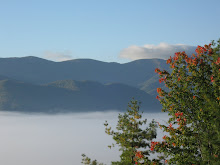In Cathy Young's 2007 article The Fan Fiction Phenomena she writes "The vehemently anti-fanfic writer Lee Goldberg, who blogs at leegoldberg.com, is the author of several authorized novels based on the TV shows Monk and Diagnosis Murder--a contradiction he defends on the grounds that he does it only for the money".
Goldberg did work as a writer for both aforementioned television programs. However, I'm guessing (but may be wrong) that he did not create the characters. Furthermore, he is doing it for money. In our class discussions thus far, I've gotten the impression that one of the major arguments for copyright is to prevent others from profiting from others works. Evidently this is okay, if the original creator authorizes it. On the other side of the spectrum is the un-authorized fanfic. I guess I'm not understanding the flap against it, since the majority of it is not done for profit. Rather, it seems to be simply what its label implies--fiction created by fans. It would seem to me that one creates an original work with the hope that it will be well received and popular. That is after all, the sign of success. Authors hope to sell many books. Television show creators hope for high Nielsen ratings. Movie makers hope for box office sell-outs. When books, tv shows, and movies are popular, fans are then expected to suck up all they hype; to buy the posters and calendars, even the t-shirts. However, not to include their beloved characters in their own creative expressions.
Goldberg's blog is interesting and informative. He has several posts referencing a certain Lady Sybilla and her novel Russet Noon which she wrote as a continuation to Stephenie Meyer's Twilight series. Evidently, there were plans for this book to be available for purchase on e-bay, which have since been tabled due to obvious copyright issues.
Here I pose a questions to the fanfic writers who would like to make a profit? Wouldn't it be easier to take your original work--and make it a little more original? Come on, Russet Noon is a terrible title and an obvious rip-off. I guess russet is a color--but isn't it also a type of potato? As mentioned in chapter 1 of our Russell text, referring to recurring themes in tv shows,it is legal to copy "ideas" because "the idea itself belongs to everyone and is in the public domain. The way the scene plays out is an expression of it. Each show uses the idea but creates a new expression." So take your vampires, take your werewolves, take your love triangle and simply create a new expression. Maybe it will be even a bigger seller than Twilight.
Read Online A Little SPOT of Kindness Kobo PDF
4 years ago

No comments:
Post a Comment